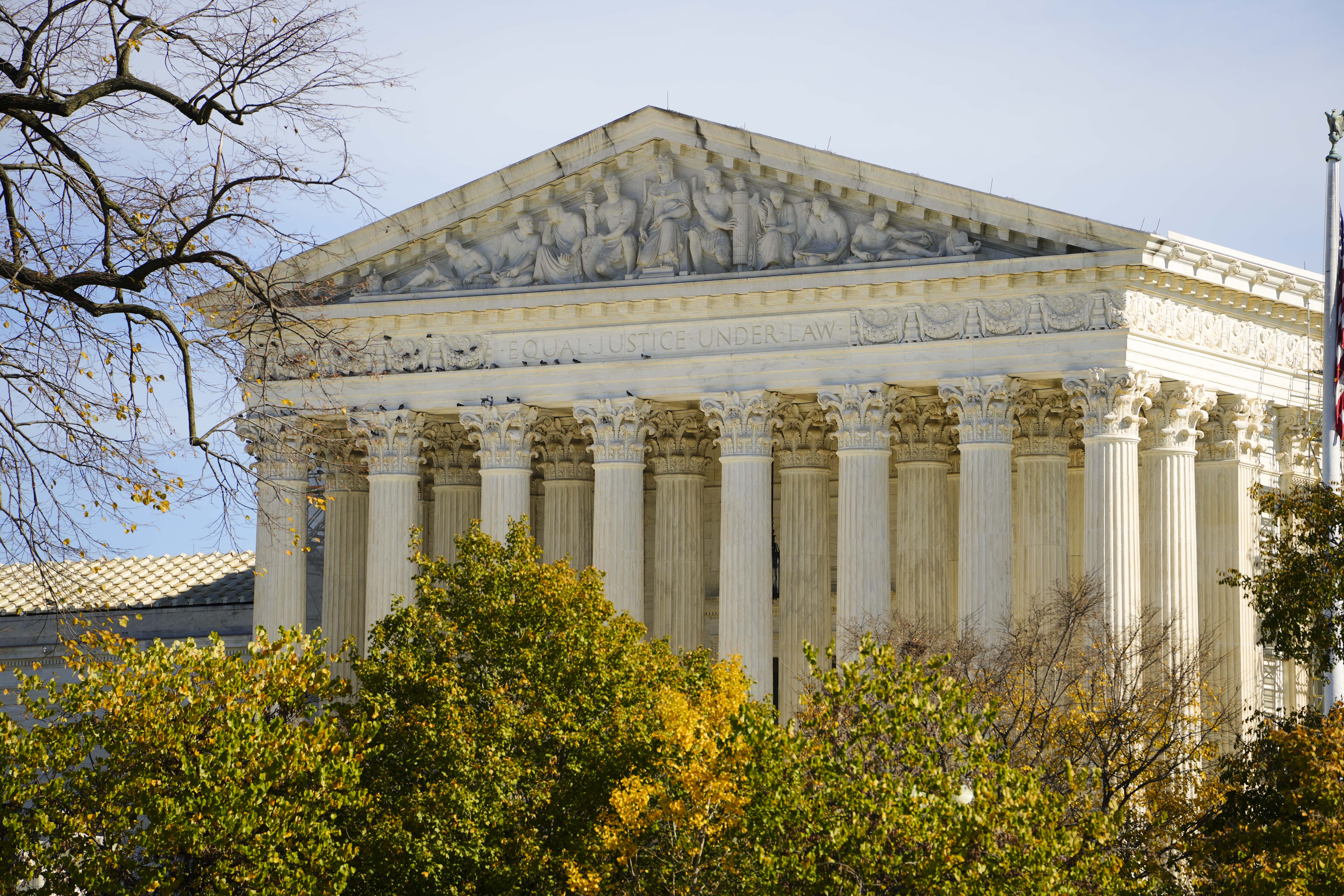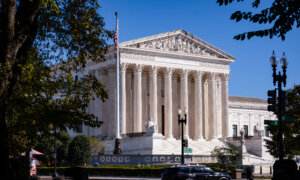The Supreme Court will soon hear a California case challenging the power of governments to use the permitting process to force property owners to pay large development fees.
The court announced last week that it will hear oral argument in the case, Sheetz v. County of El Dorado (court file 22-1074), on Jan. 9.
The homeowner is suing El Dorado County, California, which is near the state’s border with Nevada, claiming the county violated his rights under the Fifth Amendment’s takings clause and the Fourteenth Amendment.
The Fifth Amendment states that “private property [shall not] be taken for public use, without just compensation.” The Fourteenth Amendment states that no state shall “deprive any person of life, liberty, or property, without due process of law.”
Brian Hodges is a senior attorney at Pacific Legal Foundation (PLF), a national public interest law firm headquartered in Sacramento, California, that challenges government overreach. PLF is co-counsel representing petitioner George Sheetz, alongside attorney Paul Beard of Fisher Broyles in Los Angeles.
“Holding building permits hostage in exchange for exorbitant fees is extortion plain and simple, whether it’s done at the permit desk or city hall,” Mr. Hodges said in a statement.
“Local governments cannot use the cover of legislation to skirt the Fifth Amendment’s prohibition against taking private property without just compensation.”
In 2016, Mr. Sheetz purchased a vacant lot with the intention of building a small, manufactured home in which he and his wife would live in retirement and raise their grandson. But when he sought a building permit from the county, he was told he would have to pay a so-called traffic impact fee of $23,420.
The county told Mr. Sheetz that he was required to pay the fee because of local legislation that aimed to shift the cost of addressing existing and future road deficiencies onto new development. This means, his lawyers argue, that the fee was imposed without any evidence tying the construction project to any specific public costs or impacts.
The fee financing the unrelated road improvements bore neither an “essential nexus” or “rough proportionality” to whatever local impact his construction project would result in, Mr. Sheetz argued in his petition (pdf).
He said the fee was an unconstitutional “exaction” according to the Supreme Court precedents of Nollan v. California Coastal Commission (1987) and Dolan v. City of Tigard (1994). An exaction is a condition for development imposed on a developer to offset the costs of the development to a local government. An exaction is similar to an impact fee, which is a direct payment made to a municipality in lieu of conditions being imposed on the development.
Mr. Sheetz paid the fee under protest and sued, arguing the fee was an unconstitutional permit condition under the Supreme Court’s 2013 ruling in Koontz v. St. Johns River Water Management District, a case in which PLF acted.
The precedent, according to PLF, held that “the government cannot weaponize the permitting process to extort more land or money from property owners than is needed to pay for the identified public impact of the proposed building project.”
But a state court ruled against him, finding the required fee was authorized by legislation. The California Court of Appeal and the California Supreme Court also ruled against him.
Mr. Sheetz filed his opening brief (pdf) in the case last week, arguing that legislatures cannot use the permit process to coerce owners into paying development fees.
The county levied the exaction against Mr. Sheetz to fund its 20-year plan from 2004 to fix and upgrade the local road system. Because state and federal transportation funds would yield just a fraction of the estimated $840.5 million needed for the improvements, the county had to figure out how to raise the remaining $572.3 million, the brief states.
Instead of relying on general taxes, the county decided to use a different approach to finance the road plan. The county chose to shift the remaining, unfunded cost of the public improvements onto the small number of developers and property owners proposing new projects.
The Epoch Times reached out to attorneys for the county, Aileen McGrath of Akin Gump Strauss Hauer and Feld in San Francisco, and Glen Hansen of Abbott and Kindermann in Sacramento, California, but had not received a reply from either of them as of press time.
In the summer, the county filed a brief (pdf) in which it urged the Supreme Court not to accept the case.
Mr. Sheetz is wrong to argue that the lower court decision he is appealing is in tension with the Koontz ruling “because Koontz simply did not address the issue raised in his Petition.”
Koontz did not affirm that all permit exactions, including legislatively authorized ones, are subject to scrutiny under the unconstitutional conditions doctrine. The ruling did not address the issue, the brief said.
The Southeastern Legal Foundation, Beacon Center of Tennessee, Claremont Institute’s Center for Constitutional Jurisprudence, California Building Industry Association, Building Industry Association of the Greater Valley, and the National Association of Home Builders have filed briefs in support of Mr. Sheetz.









